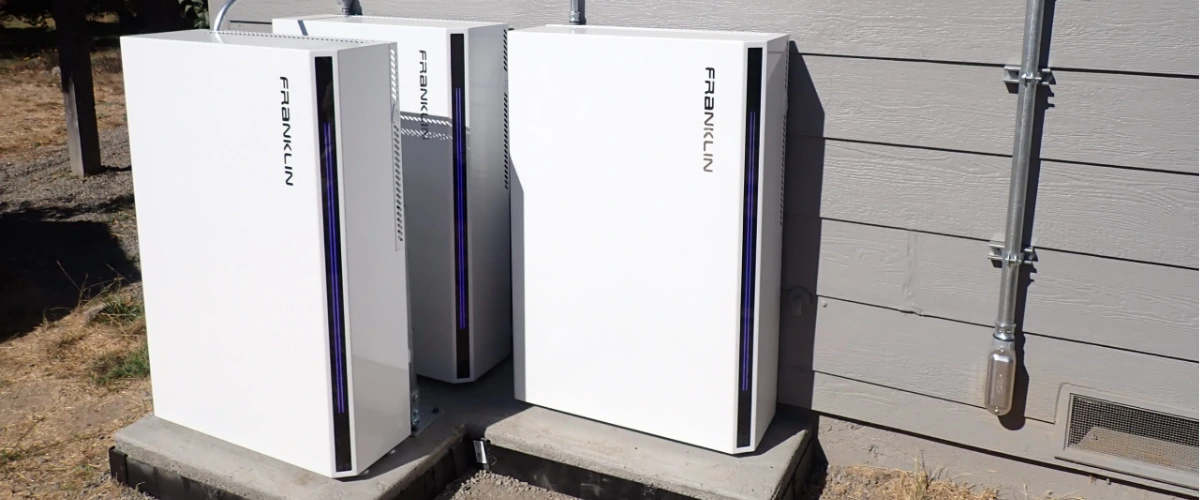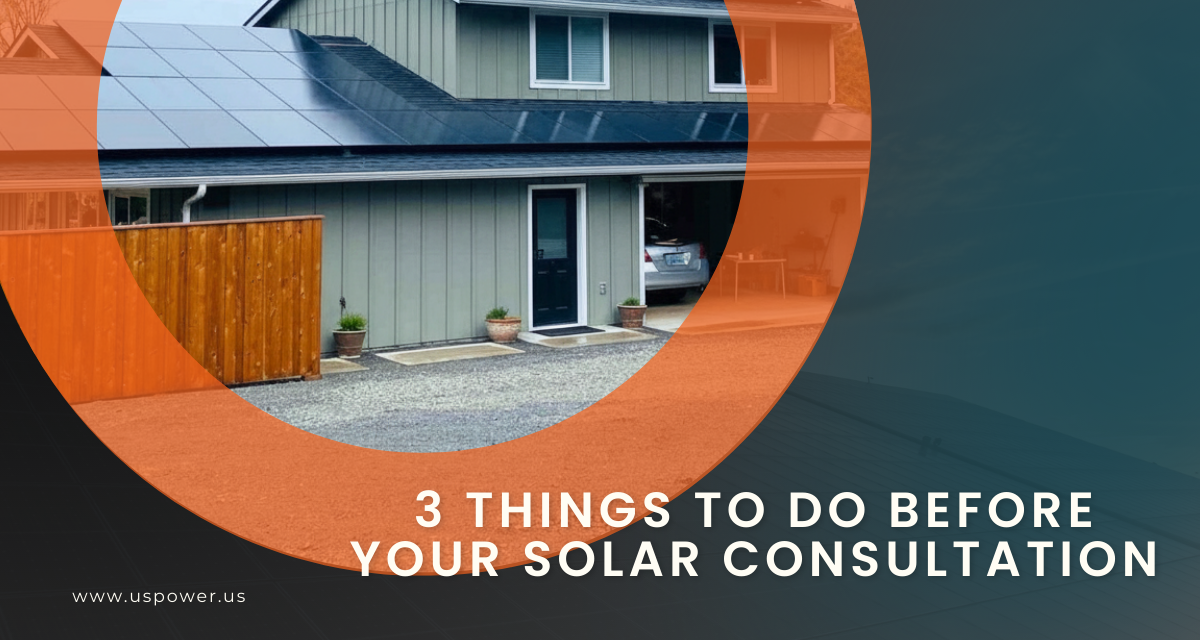$23K Solar Battery Quote? Compare Franklin, Tesla & QCells

Solar and Roofing Advisor
Southern California homeowners: get the facts on $23,200 Franklin aPower2 quotes, SGIP rebates, and how to choose a reliable installer like US Power.

If you’re a Southern California homeowner (especially under SoCal Edison), getting quoted $23,200 to install a Franklin aPower2 (15 kWh) battery—even with an SGIP rebate of $15,000—is triggering major sticker shock. You’re not alone: other homeowners on solar forums note that Tesla Powerwall 3 systems are being quoted around $15,500 installed, raising the question: Are installers inflating prices when SGIP incentives are in play?
This concern isn’t just about overpaying. It’s about making smart decisions with your solar + storage system, ensuring you maximize incentives, and partnering with a trustworthy company—like US Power, which offers factory-direct pricing on American‑made QCells panels and battery solutions.
In this blog, we dissect whether a $23K price tag is reasonable, how SGIP works, what to ask your installer, and how to make sure you're getting real value — all from the perspective of a SoCal homeowner. We'll also highlight how QCells solar panels and battery storage from US Power can deliver both reliability and long-term value.
Understanding SGIP: What California’s Storage Rebate Really Means
SGIP, or the Self-Generation Incentive Program, is California’s long-running rebate initiative for clean energy technologies. It includes major support for residential energy storage systems.
The California Public Utilities Commission (CPUC) sets the incentive levels, which vary depending on the “budget category” you qualify for.
SGIP Rebate Levels (as of 2025)
- General Market (residential storage up to ~30 kWh): Roughly $150–$200/kWh, depending on fund availability.
- Equity Budget: $850/kWh for lower-income or disadvantaged customers.
- Equity Resiliency Budget: $1,000–$1,100/kWh for customers in fire-risk zones, PSPS‑affected areas, or medically vulnerable households.
For example, the CPUC estimates a typical 15 kWh battery for a single-family home, paired with a ~5 kW solar system, can qualify for up to $1,100 per kWh under the right SGIP budget — giving a potential rebate of $16,500+.
There’s also an advanced payment option: up to 50% of your incentive can be paid up-front so you're not stuck paying the full cost until the system is installed.
So Is $23,200 a Reasonable Price for an aPower2 With SGIP?
Breaking Down the Math
- Quoted price: $23,200
- SGIP rebate (claimed): $15,000
- Net cost to homeowner (before other factors): $8,200
On a 15 kWh unit, $8,200 comes out to roughly $547/kWh net — which is much higher than what many would expect assuming SGIP is applied correctly.
What Homeowners on Forums Are Saying
Multiple homeowners believe the installer marked up the price because SGIP is involved:.
“They jacked up the price knowing you got the SGIP.” - Reddit User
Several point to Tesla Powerwall 3 as a comparable system, with quotes in the $15,000–$16,000 range (installed).
Others note that typical Franklin aPower2 battery quotes are under $20K for standalone installs (depending on installer and region).
Is the Franklin aPower2 a “Superior Product”? A Quick Comparison
Franklin aPower2 vs. Tesla Powerwall 3
| Feature | Franklin aPower2 (15 kWh) | Tesla Powerwall 3 (Estimated) |
|---|---|---|
| Capacity | ~15 kWh (as quoted) | Roughly similar (public spec sheets vary) |
| Reliability | Emerging praise; less mainstream | Tesla brand recognition, but older Powerwalls (e.g., PW2) have had safety recalls |
| Typical Quote Range | $18K–$23K (depending on installer) | ~$15,500 quoted by some buyers |
A solar professional on Reddit even argued the Franklin aPower2 is “by far a superior product” to older Powerwall 2 units. But “superior” doesn’t always mean cheaper — especially if the installer is inflating the markup because of the SGIP rebate.
Red Flags and Questions to Ask Your Installer
- Ask for a line-item breakdown: How much is the battery hardware? How much is labor? How much of the quote is “general system overhead” or margin?
- Verify the SGIP incentive calculation: Ensure your installer is applying the correct $/kWh rate (based on your eligibility). If you’re being told $15,000, check whether that aligns with the current SGIP rate for your income level or geography.
- Check for demand response or other SGIP requirements: To receive SGIP, you may need to enroll in a demand-response program or meet other terms.
- Seek multiple quotes: As some Reddit users reported, getting competitive quotes (e.g., from Tesla or other installers) can help you spot overpricing.
- Ask about financing or tax credits: Even after SGIP, federal tax credits (like the Investment Tax Credit) might further reduce your net cost.
- Don't ignore warranties and service: Ensure the battery and installation come with strong warranties. Ask about lead times, replacement policies, and what happens if there's a system failure.
Why Solar + Battery (Especially With a Partner Like US Power) Still Makes Sense in SoCal
Even with a high quote, adding storage to your home has compelling benefits if done right. Here’s how a trusted solar provider like US Power — with our exclusive QCells partnership — delivers value:
Made‑in‑America QCells Panels
QCells operates a huge solar panel manufacturing facility in Dalton, Georgia — now one of the largest of its kind in the Western Hemisphere.
They are building a complete solar supply chain in the U.S., including ingots, wafers, cells, and modules.
The result? American-made panels with factory-direct pricing through US Power, cutting out the middleman.
Bonus: QCells recently earned the EPEAT Low‑Carbon Solar distinction for its panels assembled in Georgia — signaling their lower carbon footprint.
Better Margins, Transparent Pricing
Because US Power partners directly with QCells (as an Axia by QCells installer), we avoid inflated markups. That means more predictable pricing, and less chance you're paying extra because of incentives like SGIP.
Long-Term Reliability + Service
When you choose a reputable installer and high-quality components, you're not just paying for the hardware — you're paying for warranty coverage, proper installation, and ongoing support. That pays dividends when things like wildfire risk or power outages increase the value of energy storage.
What to Do Next: A Homeowner’s Action Plan
- Request another battery quote: Get at least 2–3 quotes for the same 15 kWh system. Ask one to use Franklin, one to use Tesla (or another brand), and compare line-item costs.
- Confirm your SGIP eligibility and rebate rate: Talk to your installer and utility to double-check whether you qualify for $850/kWh, $1,000/kWh, or $1,100/kWh, and make sure that your installer is using the correct rate to calculate the SGIP portion.
- Talk to a trusted US Power consultant: We can run a no-obligation assessment for your home:
- How much battery capacity makes sense for your usage?
- How much solar + battery will cost for you (with SGIP, tax credit, and our factory-direct QCells pricing)?
- What your projected savings and resilience gains will be.
- Evaluate financing and payback: Use a spreadsheet or ask your solar provider to model scenarios: your cost with SGIP, net cost, how much your bill will go down, and how long before your investment pays for itself.
Get Smarter When You Switch to Solar
$23,200 for a 15 kWh Franklin aPower2 with $15,000 SGIP = net $8,200. That’s not necessarily a “steal,” and probably leans on the steep side given current SGIP rates.
Homeowners are wise to shop around, ask for detailed pricing, and confirm how SGIP incentives are being applied. A trusted partner like US Power, with factory-direct QCells panels, can offer not just competitive pricing — but long-term reliability, transparency, and American-made quality.
Ready to compare quotes or get a second opinion?
Schedule your solar battery installation today for a free home energy assessment.
We'll walk you through your SGIP eligibility, battery options, and how our QCells panels + storage systems can give you maximum value — without paying more than you should.
Frequently Asked Questions
Related Articles
Our Related Blogs
3 Things to Do Before Your Solar Consultation
Prepare effectively for your solar consultation with these essential steps.
Get the Power & Savings Your System Should Deliver
A complete guide to solar panels and batteries for Southern California homeowners.
Why Professional Solar Installation Matters: Safety Lessons from DIY Mistakes
Six dangerous mistakes. Thousands of dollars at risk. US Power can help you.








We empower communities and businesses to harness clean, renewable solar energy solutions that drive sustainable growth.
Ready to Own Your Power? Call us today!
818-650-8010
Copyright © 2025 US Power - Axia by QCells. All Rights Reserved.
Privacy is important to us, so you have the option of disabling certain types of storage that may not be necessary for the basic functioning of the website. Blocking categories may impact your experience on the website.
Essential
These items are required to enable basic website functionality.
Personalization
These items allow the website to remember choices you make (such as your user name, language, or the region you are in) and provide enhanced, more personal features.
Marketing
These items are used to deliver advertising that is more relevant to you and your interests.
Analytics
These items help the website operator understand how its website performs, how visitors interact with the site, and whether there may be technical issues.
We and our third-party partners use cookies and other technologies to enhance and track your experience on this site, conduct analytics, and personalize marketing to you. By using the site, you agree to our use of these technologies, including recording and monitoring your interactions with the site.
Get an instant solar estimate using satellite!









